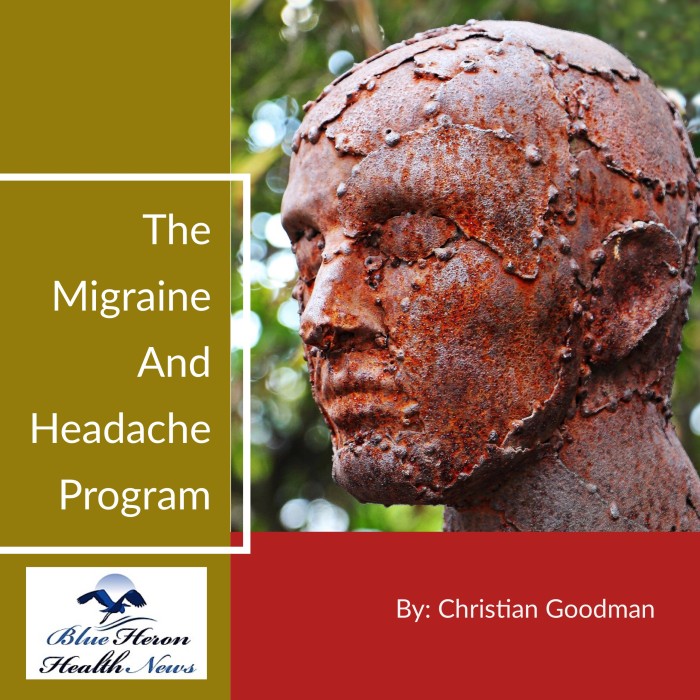
The Migraine And Headache Program By Christian Goodman This program has been designed to relieve the pain in your head due to any reason including migraines efficiently and effectively. The problem of migraine and headaches is really horrible as it compels you to sit in a quiet and dark room to get quick relief. In this program more options to relieve this pain have been discussed to help people like you.
What is the role of melatonin in migraine prevention?
Melatonin, a hormone primarily known for regulating the sleep-wake cycle, has been studied for its potential role in preventing migraines. Emerging research suggests that melatonin may help reduce the frequency and severity of migraines due to its effects on sleep regulation, pain modulation, and its anti-inflammatory and antioxidant properties. Here’s how melatonin may contribute to migraine prevention:
1. Regulation of Sleep-Wake Cycle
- Improving Sleep Quality: Migraines are often triggered or worsened by poor sleep or irregular sleep patterns. Melatonin helps regulate the circadian rhythm, promoting more consistent and restorative sleep. Improved sleep quality can reduce the likelihood of migraines triggered by sleep disturbances.
- Preventing Sleep-Related Migraines: Many migraine sufferers report that sleep problems, such as insomnia or irregular sleep cycles, can trigger migraines. By promoting regular sleep, melatonin may help prevent sleep-related migraines.
2. Pain Modulation
- Analgesic Effects: Melatonin has been found to have analgesic (pain-relieving) properties, which may help alleviate migraine pain. It is believed that melatonin interacts with the central nervous system to modulate pain pathways, potentially reducing the severity of migraine attacks.
- Influence on Serotonin and Norepinephrine: Melatonin may impact neurotransmitters such as serotonin and norepinephrine, which are involved in pain perception and migraine pathophysiology. By influencing these neurotransmitters, melatonin may help reduce the intensity of migraines.
3. Anti-Inflammatory and Antioxidant Properties
- Reducing Inflammation: Migraines are often associated with neurogenic inflammation, a process where the nerves release inflammatory chemicals that contribute to migraine pain. Melatonin has anti-inflammatory properties, which may help reduce this inflammation and lower the frequency of migraines.
- Antioxidant Effects: Oxidative stress is another factor implicated in migraines. Melatonin is a powerful antioxidant that helps neutralize free radicals, reducing oxidative stress in the brain and possibly preventing migraines triggered by oxidative damage.
4. Regulation of Blood Flow
- Vasomotor Regulation: Melatonin may influence vascular function, including the regulation of blood vessel tone and diameter. Since migraines are often associated with abnormal blood flow and dilation of blood vessels in the brain, melatonin’s ability to regulate vasomotor function could help prevent migraines.
- Impact on Cerebral Blood Flow: By improving the regulation of blood flow in the brain, melatonin may prevent the abnormal cerebral blood flow changes that contribute to migraine onset.
5. Hormonal Regulation
- Impact on Hormone-Related Migraines: Hormonal fluctuations, such as those related to the menstrual cycle, are common migraine triggers. Melatonin’s role in regulating other hormones, including cortisol and estrogen, may help mitigate hormone-related migraines, particularly in women.
6. Prevention of Chronic Migraines
- Reduction in Migraine Frequency: Several studies have shown that melatonin supplementation may reduce the frequency of migraines. For example, melatonin has been found to be as effective as some traditional migraine preventive medications (such as amitriptyline) in reducing migraine attacks, with fewer side effects.
- Chronic Migraine Management: For individuals who experience chronic migraines (15 or more headache days per month), melatonin may be a beneficial adjunct therapy to reduce the number of migraine days.
7. Minimal Side Effects
- Fewer Adverse Effects Compared to Other Medications: One of the advantages of melatonin as a preventive treatment for migraines is that it tends to have fewer side effects than many conventional migraine medications, such as beta-blockers, anticonvulsants, or antidepressants. This makes melatonin a potentially safer option for long-term use in migraine prevention.
How Melatonin Is Used for Migraine Prevention
- Dosage and Timing: Melatonin is typically taken in doses ranging from 3 mg to 10 mg, usually 30 minutes to an hour before bedtime. The exact dosage and timing may vary depending on individual needs, and it is best to consult with a healthcare provider to determine the appropriate regimen.
- Consistency: Melatonin may need to be taken consistently over time to achieve its full preventive effects. It is often used as part of a comprehensive migraine management plan that includes lifestyle changes, other preventive medications, and stress management.
Conclusion
Melatonin may play a beneficial role in preventing migraines by improving sleep quality, reducing inflammation, modulating pain, and regulating blood flow. Its anti-inflammatory and antioxidant properties further contribute to its potential efficacy in reducing the frequency and severity of migraine attacks. Due to its relatively low side effect profile, melatonin is considered a promising option for migraine prevention, especially for individuals with sleep-related migraines or those looking for an alternative to conventional migraine medications. However, as with any treatment, it’s important to consult with a healthcare provider before starting melatonin supplementation to ensure it is appropriate for individual health needs.

The Migraine And Headache Program By Christian Goodman This program has been designed to relieve the pain in your head due to any reason including migraines efficiently and effectively. The problem of migraine and headaches is really horrible as it compels you to sit in a quiet and dark room to get quick relief. In this program more options to relieve this pain have been discussed to help people like you.